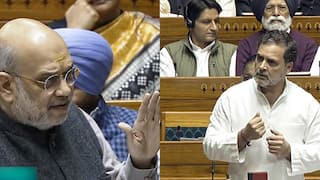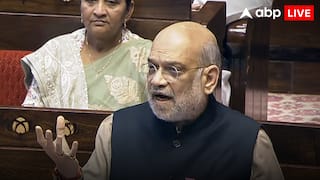Explorer
Q&A: RBI Slashes Repo Rate By 40 Bps; What Is It? What Does The Rate Cut Mean For You?
The lower cost of borrowing can help banks in cutting their respective marginal cost of funds based lending rate (MCLR), which impacts the minimum interest rate that a bank charges on the loan impacting your EMIs.

In view of the repo rate cut, reverse repo also gets adjusted to 3.35 per cent from 3.75 per cent. (Photo by Sajjad HUSSAIN / AFP)
New Delhi: In order to revive the fledgling economy which has been hit by the Covid-19 induced lockdown, RBI governor Shaktikanta Das has announced repo rate cut by 40 basis points (bps) to 4 per cent on Friday. In view of the repo rate cut, reverse repo also gets adjusted to 3.35 per cent from 3.75 per cent. At the time of RBI’s announcement on monetary policy, there are always steps related to repo and reverse repo rates under the liquidity adjustment facility (LAF). These are mostly referred as the policy rate. Here is what the rate cut means? What is repo rate? It is the repurchase rate or the rate at which RBI lends money to banks, when banks are short of funds. Mostly banks borrow for short-term needs and usually overnight borrowings. This typically involves government securities. The apex bank buys government bonds from banks and agrees to sell them back to banks at a fixed rate. What does repo rate cut mean for banks? At the time of repo rate cut, banks can borrow money at a cheaper rate. When RBI increases the rate, borrowing from RBI becomes more expensive. This impacts the credit to bank customers including institutions, businesses or individual borrowers. How does the repo rate affect EMIs? There are different types of borrowers depending on the rates they choose in the market. The lower cost of borrowings can help banks in lowering their respective marginal cost of funds based lending rates (MCLR). It is the minimum interest rate that a bank will charge on the loan and directly impacts your EMIs. But remember banks also consider the cost of deposits to determine MCLR. So, the benefit of the rate cut in the MCLR-linked loans may take some time. The repo rate cut comes on the back of sluggish credit offtake in the market with lower investments. EMIs on home, auto, personal and term loan rates can be expected to come down in the coming days. However, banks may cut deposit rates on tenures to manage its asset-liability position. Savers and pensioners will see their returns coming down. What is reverse repo? It is the opposite of repo rate. This is the rate at which RBI borrows funds from other banks for the short term. In this scenario RBI sells bonds to banks with a promise to buy back them in future. At a time when banks have excess funds they can deposit these funds with RBI and earn interest on them at the same time. Also Watch:
Follow Business News on ABP Live for more latest stories and trending topics. Watch breaking news and top headlines online on ABP News LIVE TV
Read more

Sayantan Ghosh
Opinion





































